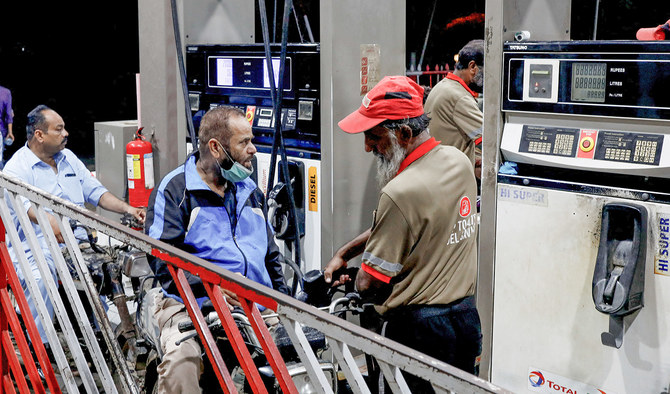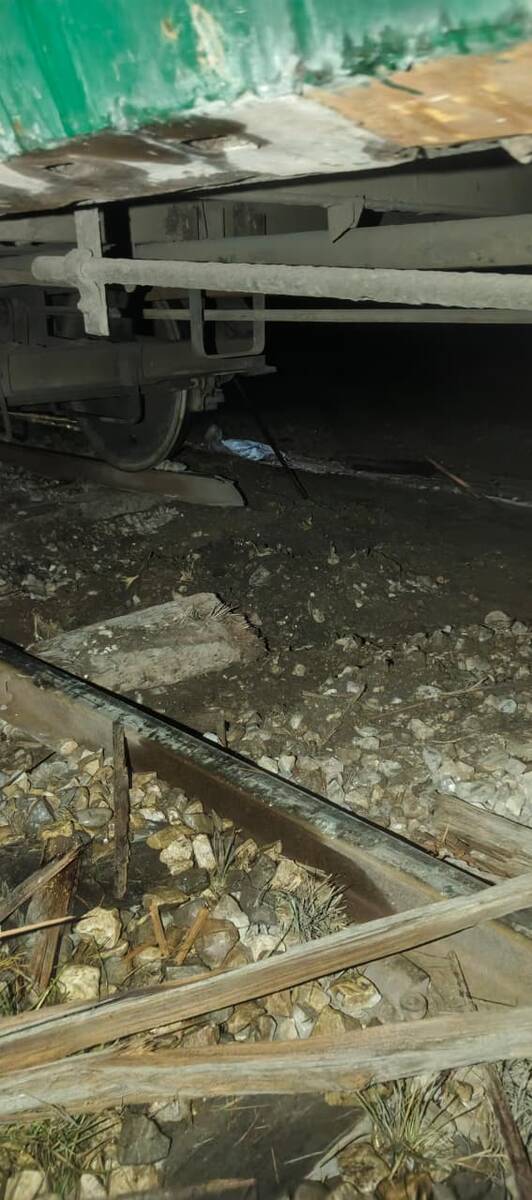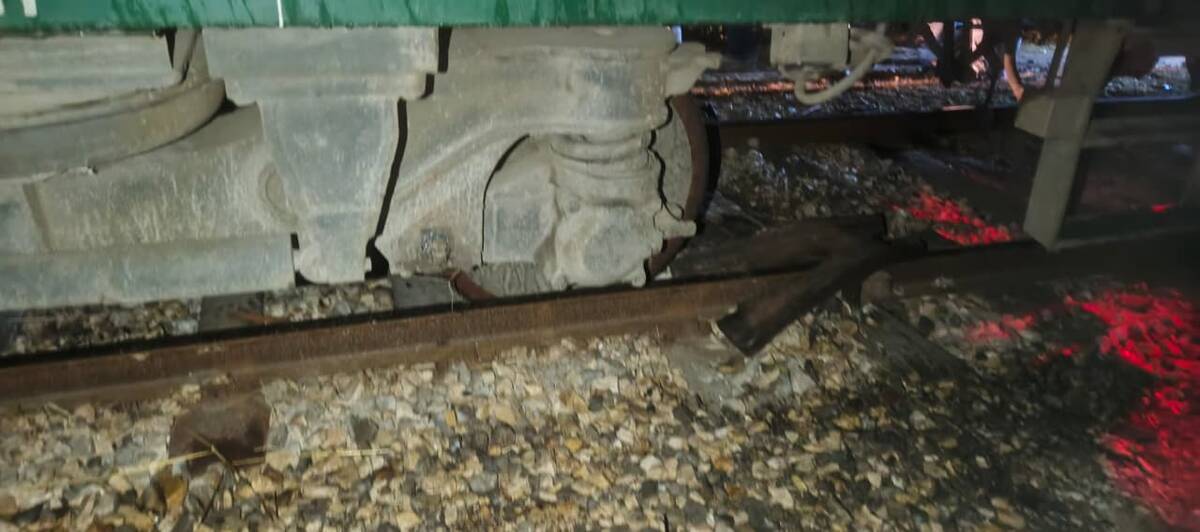ISLAMABAD: Pakistan’s caretaker energy minister, Muhammad Ali, said on Sunday his country was “heavily reliant” on expensive energy imports and the government had limited control over their pricing, amid a public uproar over back-to-back hikes in electricity and petroleum prices.
Pakistan announced a record increase in the prices of petroleum products this week, with the price of petrol going up by Rs26.02 to Rs331.38. The hike in petroleum prices, the third by the interim government of Prime Minister Anwaar-ul-Haq Kakar, came months after the outgoing government increased the power tariff in July, which led to inflated bills in August.
The developments came months after Islamabad signed a badly-needed $3 billion deal with the International Monetary Fund (IMF) to avert a default due to decades of mismanagement and instability. However, the global lender demanded that popular subsidies cushioning living costs be slashed and imposition of more than Rs50 petroleum levy on every liter.
Poverty-stricken Pakistanis have staged several demonstrations and strikes in recent weeks in protest over the hikes that are expected to further fuel inflation, which clocked in at 27.4 percent year-on-year in August, but officials say the government’s limited control over the energy prices makes it necessary to pass on the impact to consumers, regardless of the IMF deal.
“We are heavily reliant on imports for 70 percent of our oil requirements,” the energy minister told Arab News. “Consequently, we must sell these products to consumers at the rates we purchase them from the international market.”
Ali, however, said the impact of rupee strengthening against the dollar was not fully encapsulated in the latest revision of petroleum prices. “This will hopefully be captured in the future price revision,” he added.
Reached for comment, people in the Pakistani capital of Islamabad collectively rejected the surge in energy prices and demanded the government withdraw them.
Ahsan Ali, a security guard at a private company, said it had already been difficult for him to make the ends meet and the latest hike would make it even harder.
“If I will spend all my salary on commuting between office and home, how we will survive,” he asked. “The government should devise a strategy to provide relief to the poor segment of the society so that they can at least live.”
Muhammad Ikram, a lawyer in Islamabad, said the increase in fuel prices would aggravate the situation in the coming days.
“The increased cost of living already posed challenges for the less fortunate in the nation,” Ikram told Arab News. “The rise in oil prices will further worsen their struggles.”
Unfortunately, the energy minister said, improper pricing and less-than optimal extraction of Pakistan’s oil and gas reserves were one of the significant mistakes made in the country’s history.
“This was a major blunder as currently we are extracting $3.5 billion less in oil and gas than we were a decade ago,” he said.
It was essential to work on improving policy framework for oil and gas exploration, the minister said, adding the country should work at the same time on developing electric-powered public transport systems to reduce reliance on imported fuel-based vehicles.
In addition to international prices, Ali said, the government had to include some profit margin for petroleum dealers that was agreed upon by the outgoing government during its final weeks, following warnings of a strike by the dealers.
“Despite these factors, we offer petrol at one of the lowest prices in the region as the government does not generate any profit from this. Instead, it sells at international prices,” he said, admitting the prices did include a few taxes which was a “common practice” worldwide.
Experts and economists supported the government’s view that passing on the impact of international prices to consumers was essential for economic sustainability, noting that the IMF deal left hardly any room for authorities to subsidize these commodities.
“IMF or no IMF, we should not give any subsidy on fuel usage as it gives more advantage to those consumers who do not need subsidy,” Ali Salman, executive director of the Islamabad-based think tank Policy Research Institute of Market Economy (PRIME), told Arab News.
He said Pakistan followed international fuel prices to adjust its domestic rates, which was a “sound economic policy.” The expert, however, pointed to a lag between oil procurement and delivery in Pakistan.
“So, the recent appreciation of Pakistan’s rupee against the US dollar will be reflected in a proportionate decrease in the fuel prices in next price adjustment cycles,” he said.
Sarah Javaid, a research associate on international trade diplomacy, believed the government was announcing petroleum price hikes as per the deal with the IMF.
“In their latest Stand-By Agreement (SBA) report on Pakistan, the IMF stressed upon generating Rs254 billion from petroleum development levy (PDL) by raising at least Rs60/liter,” she told Arab News.
Due to this, the government had increased petrol prices by Rs78 since July, Javaid said, adding that no further increase in petroleum prices would be required to fulfill the IMF condition.
Tahir Ahmad Dhindsa, another expert working with the Sustainable Development Policy Institute (SDPI), said the government had to enhance tax collection through the Federal Board of Revenue (FBR), before it could reduce indirect taxes and offer fuel price relief to consumers.
“International price is one component of the total retail price which is charged at the petrol pump and another component which contributes to this price is the taxes, levies and indirect taxes,” he told Arab News.
He said the government was forced to levy those taxes because the FBR failed to raise taxes and the tax-to-GDP ratio had come down, which was why it imposed taxes on essential items.













